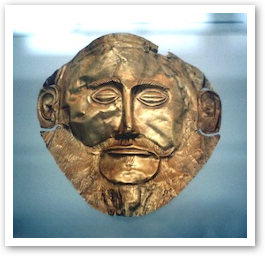Christian hope versus pagan fatalism
- FATHER GEORGE W. RUTLER
Without Christ, culture lapses into the old paganism, blaming "bad luck" or "karma."
 |
Helen Hayes, a devout Catholic and the daughter of a long Irish family line, died in 1993 on the Feast of St. Patrick. Her acting career spanned nearly seventy years, and she was still a teenager when she performed in the play Dear Brutus, whose author, Sir J. M. Barrie, also wrote Peter Pan. The play is about people who enter a magic garden to see what they might have become had they chosen different paths in life. The title is from Shakespeare's Julius Caesar where Cassius plots: "The fault, dear Brutus, is not in our stars, but in ourselves, that we are underlings."
To blame the stars for what happens to us was the essence of Greek tragedy, where the hero is a victim of forces beyond his control. That word "tragedy" only entered English usage around the year 1500. Christians believe in providence rather than fate: God has a benevolent plan for each soul, which we are free to accept or reject. Classical tragedy, on the other hand, has little if anything to do with moral choices, and the pagan gods were moved more by whim than by justice.
Without Christ, culture lapses into the old paganism, blaming "bad luck" or "karma." The one true God does not throw tantrums like the gods of the pagan pantheon. Because the Jews believed in a just God, they asked Jesus if some people slain by Pontius Pilate were being punished for sin. Then Jesus mentions a natural disaster that killed eighteen people.
Addressing this recently, Pope Benedict XVI said: "Jesus invites us to interpret these facts differently, connecting them with conversion: misfortunes, sorrowful events, should not arouse curiosity in us or a seeking of people presumed to be guilty, but they must be occasions for reflecting, for overcoming the illusion of pretending to live without God, and for reinforcing, with the Lord's help, the commitment to change our life." I am not to blame if I get hit by a brick, but I am accountable for how I respond to the brick and whoever threw it.
There are two sides to fatalism: pessimism, which expects the worst, and optimism, which presumes the best. "Whoever thinks he is standing secure should take care not to fall" (1Cor. 10:12). In contrast to both, is the virtue of hope, which trusts that God will not fail us if we do not fail Him. The crucifixion of the world's one innocent man was the worst crime in history, but it was not a meaningless tragedy, because it brought good out of evil. Those who are "crucified with Christ" through daily trials are not tragic heroes, but saints. St. Basil says: "Here is man's greatness, here is man's glory and majesty: to know in truth what is great, to hold fast to it, and to seek glory from the Lord of glory."
 This is Meaghen Gonzalez, Editor of CERC. I hope you appreciated this piece. We curate these articles especially for believers like you.
This is Meaghen Gonzalez, Editor of CERC. I hope you appreciated this piece. We curate these articles especially for believers like you.
Please show your appreciation by making a $3 donation. CERC is entirely reader supported.

Acknowledgement
Father George William Rutler. "Christian hope versus pagan fatalism." Weekly Column for March 14, 2010.
Reprinted with permission of Father George W. Rutler.
The Author
 Father George W. Rutler is the pastor of St. Michael's church in New York City. He has written many books, including: The Wit and Wisdom of Father George Rutler, The Stories of Hymns, Hints of Heaven: The Parables of Christ and What They Mean for You, Principalities and Powers: Spiritual Combat 1942-1943, Cloud of Witnesses — Dead People I Knew When They Were Alive, Coincidentally: Unserious Reflections on Trivial Connections, A Crisis of Saints: Essays on People and Principles, Brightest and Best, and Adam Danced: The Cross and the Seven Deadly Sins.
Father George W. Rutler is the pastor of St. Michael's church in New York City. He has written many books, including: The Wit and Wisdom of Father George Rutler, The Stories of Hymns, Hints of Heaven: The Parables of Christ and What They Mean for You, Principalities and Powers: Spiritual Combat 1942-1943, Cloud of Witnesses — Dead People I Knew When They Were Alive, Coincidentally: Unserious Reflections on Trivial Connections, A Crisis of Saints: Essays on People and Principles, Brightest and Best, and Adam Danced: The Cross and the Seven Deadly Sins.


